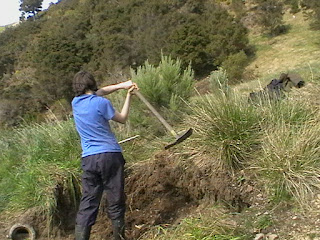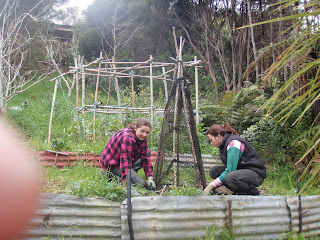 |
| New Zealand Steiner School Certificate |
After two years of concentrated work the Steiner School Certificate has now achieved full approval from the New Zealand Qualification Authority. This is a major breakthrough in the recognition of Waldorf Steiner education in New Zealand for not only serving as an alternative education model but of also having academic equivalency with state and international certificates, such as the National Certificate of Educational Achievement (NCEA) and the International Baccalaureate.
The courses covered by the Certificate have now been registered as providing quality assurance with regard to course structure, assessment rigour and national consistency.
 |
| Portrait by Class 11 Raphael House student |
range of state school subjects such as English, the Sciences, Mathematics, and the Arts, as well as validating the significant extra effort required of Steiner students to publish independent research projects, be involved in school and community events such as drama and outdoor activities and so on.
 |
| Periodic Table Science Folder, Raphael House student |
As a result, and in addition to this, the representative body for New Zealand’s eight universities – Te Pokai Tara, has also approved the certificate, which means that students who have achieved a Steiner School Certificate in Class 12 at Level 3 may be admitted Ad Eundem Statum (with equivalent status) to any of those universities.The certificate will provide a protective framework around the Waldorf curriculum and provide a state recognised pathway for Steiner School pupils through to tertiary education. This is an enormous achievement for our Steiner/Waldorf movement and one that cannot be underestimated, especially in the light of the current ideological trends in our education system.
 |
| Masks by Class 10 students at Raphael House |
Karen Brice-Geard

























